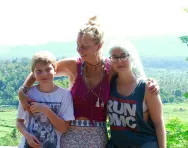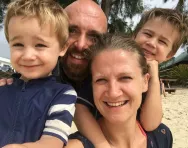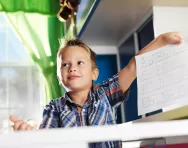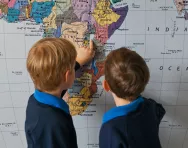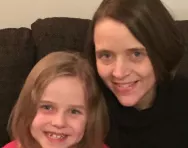Important update from TheSchoolRun
For the past 13 years, TheSchoolRun has been run by a small team of mums working from home, dedicated to providing quality educational resources to primary school parents. Unfortunately, rising supplier costs and falling revenue have made it impossible for us to continue operating, and we’ve had to make the difficult decision to close. The good news: We’ve arranged for another educational provider to take over many of our resources. These will be hosted on a new portal, where the content will be updated and expanded to support your child’s learning.
What this means for subscribers:
- Your subscription is still active, and for now, you can keep using the website as normal — just log in with your usual details to access all our articles and resources*.
- In a few months, all resources will move to the new portal. You’ll continue to have access there until your subscription ends. We’ll send you full details nearer the time.
- As a thank you for your support, we’ll also be sending you 16 primary school eBooks (worth £108.84) to download and keep.
A few changes to be aware of:
- The Learning Journey weekly email has ended, but your child’s plan will still be updated on your dashboard each Monday. Just log in to see the recommended worksheets.
- The 11+ weekly emails have now ended. We sent you all the remaining emails in the series at the end of March — please check your inbox (and spam folder) if you haven’t seen them. You can also follow the full programme here: 11+ Learning Journey.
If you have any questions, please contact us at [email protected]. Thank you for being part of our journey it’s been a privilege to support your family’s learning.
*If you need to reset your password, it will still work as usual. Please check your spam folder if the reset email doesn’t appear in your inbox.
Primary school around the world: Switzerland
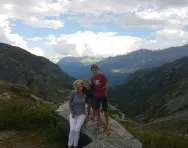
Fiona Flintham lives in Zug, Switzerland, with her sons Harry, nine, and Fred, six.
Here in Switzerland, children are later to start academic work than in the UK. They start school at the age of five, but their Kindergarten years are purely play-based. They don’t do any desk work at all until Grade 1; six-year-old Fred has only just started to learn to read and write.


Claim four puzzle packs!
- Word Puzzle Packs
- Numeracy Puzzle Packs
- Challenging and exciting | Boost key skills
Fred goes to a tiny local school, just 100m from our apartment. There are only 36 children in the school, which goes from Kindergarten to Grade 2. There are nine children in his year, but 18 in the classroom, as Grades 1 and 2 are taught together.
Harry is nine, in Grade 4, and goes to a larger school, but it’s still small by UK standards. There are 22 children in his class, and 200 in the school. Both of their schools are state schools, but we pay for English lessons outside school. They’ll move up to middle school when they finish Grade 6, aged 12.
‘My six-year-old takes the bus on his own’
The school day is short over here. The boys go in from 8am till noon every day, and 2pm to 3.30pm twice a week – that’s it! There are no catering facilities at any local schools in Switzerland; all pupils are expected to go home for lunch between 12 and 2pm. Swiss mums usually cook a hot meal at lunchtime.
My two come home twice a week, and on the other days, they go to lunch club. Even Fred gets the bus there on his own, to the other side of town: a 10-minute journey, then a 10-minute walk including crossing the road at a zebra crossing. I’d never have let my boys be so independent at home, but here, children take buses on their own from the age of five as it’s so safe.
They also get quite a lot of holidays. There’s a two-week ‘sport holiday’ in February, when everyone goes skiing, then two weeks in the spring, October and at Christmas. The summer holiday runs from the second week of July till the last week in August, and there are lots of religious days that vary from town to town.
‘Every school is run independently’
Another big difference is that every school is run independently, so they do what’s right for the pupils they have on roll, rather than having to follow Government policy across the country. This can be a benefit, but it’s also a drawback as it’s impossible to compare results from school to school, for example.
Children also spend lots of time outdoors. Four times a year, there’s a full day of Forest School for all children, whatever the weather. They go on winter walks, ice skate and have cycle days, and go out onto the mountains to grill sausages in summer.
There’s no formal testing until children are 11 years old. None of their marks count for anything until Grade 5, when they do tests to see which school they’ll move on to. The top 20 per cent go to the equivalent of grammar school.
But although children here start school later and don’t have the pressure of tests, as soon as they start formal learning, they move quickly. Harry is almost 10, and he’s at the same level as he would be in the UK, even though he didn’t start school till later. They do get quite a lot of homework, too: Fred gets it twice a week, and Harry has 45 to 60 minutes per day, but none in the holidays.
‘I’m shocked that they don’t learn about world religions’
One of the things that most shocked me about education in Switzerland is that they don’t learn about world religions at school. RE lessons are optional; children can take either Catholic or Protestant lessons, but they’re basically preparation for their first communion or confirmation. I was surprised to find that they don’t teach children about any other religions, and as we’re not religious, we dropped the classes so Harry doesn’t have any RE.
They do learn lots about the culture in Mensch und Umwelt (People and the World), though. They often have themed days where they take in books or food and talk about different customs. It’s Harry’s favourite subject, along with Handwerk (craft); ironically, he doesn’t like English! Fred enjoys everything so far.
‘I miss sports day and Christmas plays’
There aren’t as many opportunities to get involved in school life in Switzerland. There are ways to help if you speak the language, such as baking cakes or helping at the summer barbecue, but school events are few and far between.
The biggest celebration is Fasnacht, which is a huge festival to frighten away the winter spirits. It takes place at the end of February, and all the kids dress up and join their class in a procession that circles the city. Each school takes a theme, and the idea is to be very loud and scare away the bad spirits, so there are lots of brass bands and live music.
But other than that, there are no sports days or school plays. There’s a Unihockey tournament, but it’s nothing like UK sports day: parents just drop in and see their kids’ matches. We’ve been to one Christmas concert in a local church since we arrived, but it doesn’t happen every year, and there are no Nativity plays. It’s definitely one of the things I miss about being in the UK.

